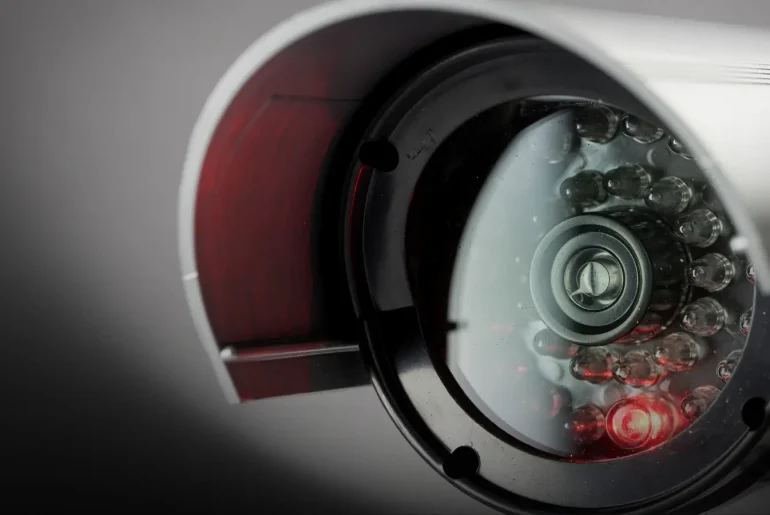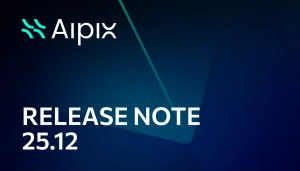How Aipix Protects Data with On-Prem Cloud Video Surveillance
According to global tech summits in different industries 2025 is the era where cybersecurity has become a global policy priority. And video surveillance as one of the most vulnerable yet overlooked areas. Video data plays a crucial role in smart cities and enterprise operations and public safety initiatives so secure private compliant data handling has become more critical than ever. The mainstream focus should be on cloud video surveillance data security as an issue that needs to be thoroughly investigated as a trend in global trend.
Traditional video management systems (VMS) continue to be used by many sectors. Even though VMS’s need major investments in hardware, software and cybersecurity infrastructure which continues to increase due to new security threats. Cloud-based video surveillance provides a cost-effective and scalable solution but its implementation creates essential issues regarding data ownership and digital independence for governments and telecom operators and enterprises. For clients of national importance, ensuring cloud video surveillance data security is a core objective. The main goal of implementation involves achieving digital independence for the region from foreign solutions including those from the U.S., China and India, etc.
Cloud-Based Surveillance Without Compromising Security
When it comes to video surveillance systems, both traditional Video Management Systems (VMS) and those utilising public cloud deployment approaches come with their own security disadvantages. Here’s a breakdown of the key concerns for each:
Disadvantages of Traditional VMS (On-Premise) in Terms of Security:
- Physical Vulnerability. Equipment (NVRs, DVRs, storage servers) can be stolen, damaged, or tampered with during break-ins or disasters. No footage is accessible if the local system is destroyed.
- Lack of Off-Site Redundancy. Data loss is likely in the event of physical damage or system failure due to the absence of cloud backup.
- Poor Cybersecurity Practices. Many legacy VMS systems are poorly patched or use outdated software. Default credentials and poor password management are common vulnerabilities.
- Limited Encryption. Some traditional systems do not encrypt video in storage or during transmission, making them vulnerable to interception.
- Limited Access Control. May lack granular access control or audit logging, making it difficult to detect or prevent insider threats.
- No Centralized Security Management. Larger deployments with multiple locations face difficulties in consistent policy enforcement and centralized threat monitoring.
Disadvantages of Third-Party Public Cloud Storage for Surveillance Data in Terms of Security:
- Third-Party Data Dependency. Sensitive surveillance footage is stored with third-party providers, which introduces risks if their security is breached.
- Data Transmission Risks. Video streams must traverse the internet, increasing the risk of interception if encryption is weak or misconfigured.
- Compliance and Jurisdiction Issues. Storing surveillance data in a cloud hosted in another country can create legal risks (e.g., GDPR, HIPAA, etc.) and complicate law enforcement access.
- Target for Cyberattacks. Public cloud infrastructure is a high-value target for hackers, including potential nation-state actors.
- Account Compromise Risk. Cloud accounts, if compromised (e.g., via phishing), could allow attackers to view, delete, or manipulate video feeds.
- Shared Responsibility Confusion. Organizations might misunderstand their responsibilities in securing cloud services, leaving misconfigured storage buckets or lax access controls.
This is where Aipix Value-Added Services Software delivers a critical advantage.
Aipix: A Trusted Platform for Secure Video Surveillance Infrastructure
Aipix VAS Platform as a cloud-native video surveillance software. It was designed to ensure cloud video surveillance data security. Why? Thanks to on-premise deployment or sovereign cloud environments thus providing complete control to telecom operators, ISPs and system integrators or even governments.
The Aipix platform differs from conventional VSaaS surveillance systems. Aipix VAS solution enables video data to remain within organizational or national borders thus ensuring:
- End-to-end data security from camera to storage and access.
- Compliance with local and international data protection regulations (e.g., GDPR, NIS2).
- Digital independence, free from dependency on foreign cloud ecosystems.
- Cost-efficiency by leveraging existing telecom infrastructure and reducing licensing overhead.
The hybrid solution fulfills the fundamental needs of modern B2B and B2G customers who require cloud scalability while maintaining control over their sensitive information. For clients of national importance cloud video surveillance data security is a core.
Why Security in Video Surveillance Matters Now More Than Ever
Video data no longer exists as passive content because it undergoes active processing and analysis to generate immediate decisions. Video surveillance operates as essential digital infrastructure throughout smart cities and transportation systems and energy networks and retail operations and government institutions. Any breach could mean exposure of personal data, threats to public safety, or loss of trust.
Cloud-based video systems need to achieve security standards equivalent to those of financial systems and enterprise IT networks.
Aipix as a Strategic Enabler for Telecoms and Integrators
Telecoms and system integrators gain the ability to provide secure video surveillance as a service through Aipix which transforms into a strategic digital asset beyond technical solutions. The platform serves three main customer groups including city governments and industrial clients and critical infrastructure organizations:
- Multi-tenant environments.
- Flexible deployment: on-prem, edge, or private cloud.
- Centralized management with strict access controls.
- Integration with national cybersecurity frameworks. It’s achieved due to flexible architecture and custom IT integration according to individual needs of operators.
Conclusion. Aipix Heads on the Future of Cybersecurity and Digital Sovereignty
As cybersecurity and data privacy dominate global agendas, Aipix is more than a video surveillance platform. It’s a foundational tool for secure digital ecosystems. It allows telecoms and system integrators to meet the increasing demands for data control, compliance, and cyber resilience, while delivering all the benefits of modern cloud surveillance technology.
In a world where video is data, and cloud video surveillance data security is a regional priority, Aipix ensures that power stays in the right hands.
Want to learn more? Discuss it with our experts in free consultation! Take a next path to digital security!





